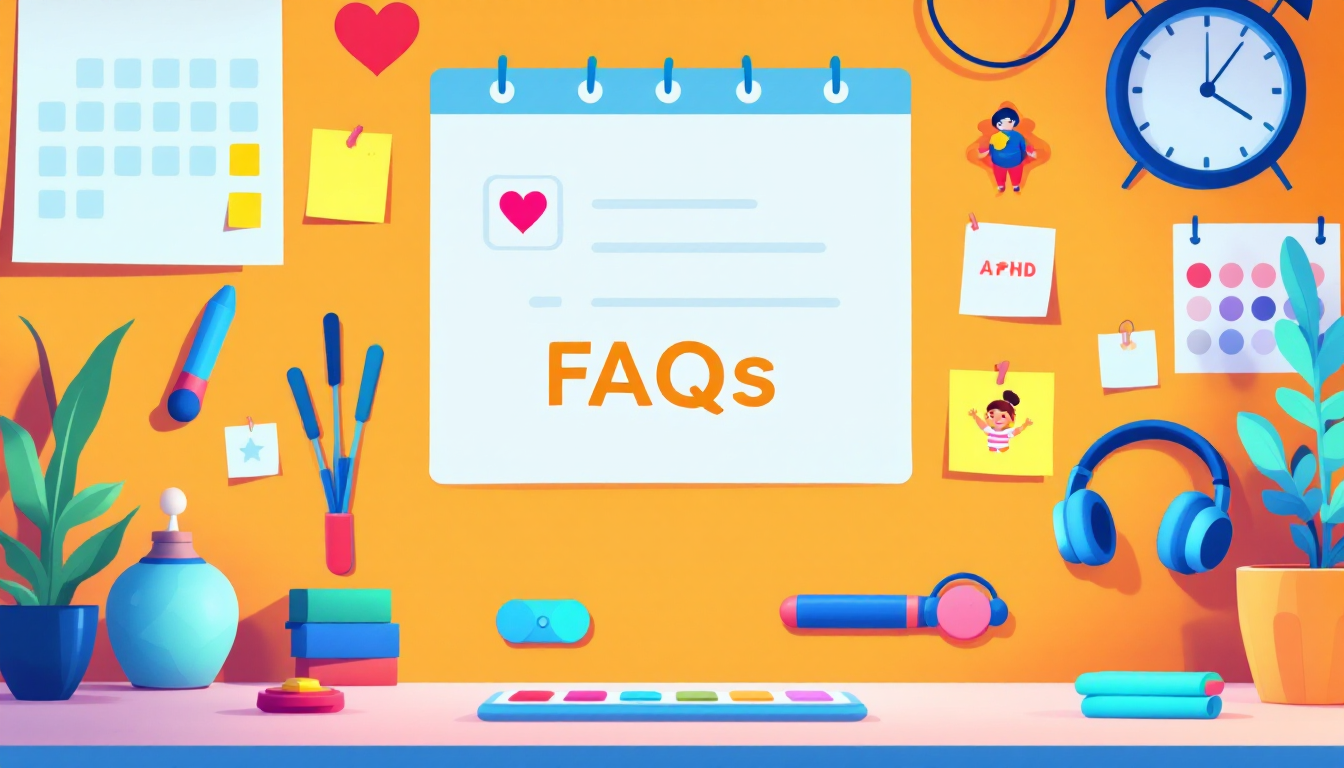How to Parent ADHD Siblings with Different Behavioral and Emotional Profiles

Parenting is a journey filled with unique joys and challenges, and when you're raising children with Attention-Deficit/Hyperactivity Disorder (ADHD), that journey often takes on an entirely new dimension. Now, imagine raising ADHD siblings with different needs. It's a reality for many families, a complex dance of understanding, adapting, and celebrating the unique neurodevelopmental paths of each child. As a parenting and ADHD specialist, I understand this intricate dynamic. My goal is to offer supportive, empathetic, and informative guidance to help you navigate this rewarding yet demanding experience.
Understanding the Unique Challenges of ADHD Siblings

ADHD is not a monolithic condition; it's a spectrum. While two children may both have an ADHD diagnosis, how it manifests can vary dramatically. This often leads to different needs, behaviors, and emotional landscapes within the same household.
Think of it like this: You might have one child, let's call him Alex, who primarily presents with inattentive ADHD. He might be quiet, easily distracted by internal thoughts, struggle with organization, and often appear to be "daydreaming." Then there's Sarah, his sister, who has hyperactive-impulsive ADHD. She's a whirlwind of energy, struggles with impulse control, talks incessantly, and finds it hard to sit still.
These contrasting presentations can create a unique set of challenges:
Differing academic struggles: Alex might need support with focusing on homework and remembering assignments, while Sarah might struggle with staying in her seat during class or blurting out answers.
Varying social dynamics: Alex might withdraw in social situations, struggling to initiate conversations, while Sarah might unintentionally interrupt or dominate interactions, leading to different social frustrations.
Emotional and behavioral dynamics in the household: Alex's quiet inattention might be overlooked amidst Sarah's more outwardly disruptive behaviors. This can lead to feelings of being unseen or misunderstood for Alex, and Sarah might constantly feel like she's "in trouble." Sibling arguments can escalate quickly due to differing emotional regulation skills.
These scenarios highlight why raising ADHD siblings with different needs requires a nuanced approach.
Why a One-Size-Fits-All Approach Doesn’t Work

It's tempting to try and apply the same parenting strategies to all your children. After all, it seems fair, right? However, when you're raising ADHD siblings with different needs, a "one-size-fits-all" approach often backfires, leading to frustration for both parents and children.
The core reason for this is the fundamental differences in how ADHD impacts each child's:
- Executive Function: This is the brain's "control center," responsible for planning, organizing, self-regulating, and more. One child might struggle significantly with planning and initiating tasks, while another might have more trouble with working memory or emotional control.
- Sensory Needs: Some children with ADHD are highly sensitive to sounds, textures, or lights, while others might seek out sensory input. A noisy environment might overwhelm one child but be barely noticed by another.
- Emotional Regulation: One sibling might internalize their frustrations, leading to meltdowns, while another might externalize them through yelling or aggressive behavior.
Trying to implement the same routine or discipline strategy for both can be counterproductive. For instance, a rigid "quiet time" might be beneficial for an inattentive child but unbearable for a hyperactive one who needs to move. Similarly, a reward system based on completing chores might work for one child but utterly fail for another who struggles with task initiation.
It's crucial to avoid the comparison trap. Saying, "Why can't you be more like your brother?" is damaging and fosters resentment. Each child is on their own journey, and their progress should be measured against their own unique development, not against a sibling's.
Tailoring Parenting Strategies for Each Child
The key to successfully raising ADHD siblings with different needs lies in individualization. This doesn't mean treating them unequally, but rather equitably – giving each child what they need to thrive.
Creating Personalized Routines and Supports
"Creating an ADHD-Friendly Routine at Home" is paramount, but these routines need to be flexible and tailored.
For the Inattentive Child:
- Visual schedules with detailed steps: Break down tasks into smaller, manageable chunks. For example, "Get dressed" might become: "1. Pick clothes. 2. Put on shirt. 3. Put on pants. 4. Put on socks. 5. Put on shoes."
- Verbal prompts and check-ins: Gently remind them of tasks or transition times.
- Designated, clutter-free workspaces: Minimize distractions for homework or quiet activities.
- Timers: Use visual timers to help them understand the passage of time for tasks.
For the Hyperactive-Impulsive Child:
-
Movement breaks: Integrate opportunities for physical activity throughout the day. This could be jumping jacks between homework assignments or a quick run around the yard.
-
Fidget toys: Provide appropriate fidget tools to help them channel excess energy while focusing.
-
Clear, concise instructions: Avoid long, multi-step directions.
-
"Wiggle room" in routines: Allow for more flexibility in sitting still or waiting.
Differentiated Discipline and Reward Systems
Discipline for ADHD in children needs to be consistent, immediate, and focused on teaching rather than just punishing. But what works for one might not work for another.
For the Inattentive Child:
-
Consequences that involve "doing" something: If they forget a chore, the consequence might be completing it immediately, perhaps with an additional small task.
-
Positive reinforcement for effort and follow-through: Reward even small steps of sustained attention or organization.
For the Hyperactive-Impulsive Child:
-
Immediate and logical consequences: If they throw a toy, the consequence is losing the toy for a set period.
-
Pre-teaching and role-playing: Practice impulse control in calm moments.
-
Reward systems focused on self-control: Celebrate moments where they successfully waited their turn or thought before acting.
Remember, the goal is to reinforce desired behaviors and teach self-regulation, not to shame or punish inherent ADHD symptoms.
Supporting Co-Regulation Without Favoritism

It's easy to fall into the trap of spending more time or energy on the child whose needs seem more urgent or disruptive. However, this can lead to feelings of favoritism and exacerbate ADHD sibling rivalry.
-
Dedicated 1:1 time: Schedule individual time with each child, even if it's just 15 minutes of uninterrupted play or conversation. This signals to them that they are seen and valued individually.
-
Acknowledge and validate feelings: When a child is struggling, acknowledge their emotions: "I see you're frustrated right now because it's hard to sit still."
-
Model empathy: Show your children how to respond to each other's differing needs with understanding. "Your sister needs a bit more quiet right now for her homework. Let's find a quieter activity for you."
Encouraging Sibling Harmony and Understanding
While managing multiple ADHD kids can sometimes feel like a whirlwind of individual needs, fostering a sense of shared understanding and harmony between siblings is crucial for long-term family well-being.
Teaching Empathy and Communication
-
Explain ADHD in age-appropriate terms: Help each child understand what ADHD means for their sibling. For example, "Remember how hard it is for you to remember to put your shoes away? For your brother, it's really hard for him to stay quiet sometimes, even when he tries."
-
Facilitate "I" statements: Teach them to express their feelings respectfully. Instead of "You always bother me!", encourage "I feel annoyed when you tap your foot under the table."
-
Perspective-taking: Engage them in discussions about how their actions might impact their sibling. "How do you think your sister felt when you snatched that toy?"
-
Positive framing: Highlight their sibling's strengths. "Alex is so good at helping you organize your LEGOs. Sarah has amazing energy for outdoor games."
Managing Conflict with Structure and Boundaries
ADHD sibling rivalry is common, but it can be particularly intense when emotional regulation is a challenge.
-
Clear house rules: Establish explicit rules about respectful communication, sharing, and personal space. Display them prominently.
-
Conflict resolution steps: Teach a step-by-step process for resolving disagreements: 1. Identify the problem. 2. Express feelings calmly. 3. Brainstorm solutions. 4. Choose a solution. 5. Try it out.
-
Parent as facilitator, not judge: When conflicts arise, guide them through the resolution process rather than immediately stepping in to solve it for them.
-
Designated "cool-down" spaces: Have a calm, quiet place for each child to retreat to when they feel overwhelmed or angry.
Encouraging Bonding Through Shared Strengths
Despite their differences, siblings with ADHD often share a unique understanding of each other's challenges. Leverage this.
-
Shared interests: Identify activities they both enjoy, even if they engage with them differently. Perhaps one likes to build intricate structures while the other prefers active, imaginative play with the same blocks.
-
Cooperative games: Encourage games that require teamwork rather than competition.
-
Celebrate individual and collective successes: Acknowledge when they support each other or work together effectively. "I loved how you helped your brother find his missing book."
Self-Care and Support for Parents

Raising ADHD siblings with different needs can be an emotional marathon. The mental and physical load of parenting multiple neurodivergent children is immense. It's easy to neglect your own needs amidst the constant demands.
-
Acknowledge the emotional load: It's okay to feel overwhelmed, frustrated, or even guilty. These emotions are normal responses to a challenging situation.
-
Seek professional support:
-
Therapy: Individual therapy can provide a safe space to process your emotions, learn coping strategies, and manage stress.
-
Parent coaching: An ADHD parent coach can offer specific strategies and accountability tailored to your family's unique dynamics.
-
-
Connect with online communities: Platforms like Bonding Health or other online forums dedicated to ADHD parenting can provide a sense of community, shared experiences, and practical advice. Knowing you're not alone is incredibly powerful.
-
Prioritize self-care: This isn't selfish; it's essential for your well-being and your ability to parent effectively. Even small acts of self-care – 15 minutes of quiet reading, a walk, a warm bath – can make a difference.
-
Manage guilt and burnout: Let go of the need for perfection. You are doing your best. Focus on progress, not perfection. Delegate tasks where possible, whether to a partner, family member, or even by hiring occasional help.
Expert Tips and Tools That Can Help

There are many practical tools and resources that can make ADHD routines for families smoother and daily life more manageable when raising ADHD siblings with different needs.
-
Behavior charts: Customizable charts can track individual goals and provide positive reinforcement. Make sure the goals are specific and achievable for each child.
-
Timers: Visual timers (like Time Timers) are excellent for transitions, task completion, and managing screen time.
-
Noise-canceling headphones: These can be a lifesaver for children with sensory sensitivities, especially during homework or in noisy environments.
-
Visual schedules: Beyond just routines, visual schedules can break down complex tasks, prepare children for transitions, and help with daily planning.
-
Books and podcasts:
-
Driven to Distraction by Edward M. Hallowell and John J. Ratey
-
The Explosive Child by Ross W. Greene (excellent for children with ADHD emotional regulation challenges)
-
Podcasts like "ADHD Experts Podcast" or "Parenting ADHD Podcast."
-
-
Mobile apps:
-
Routines/Task Management: Apps like "Tody" or "OurHome" can help manage chores and routines.
-
Focus/Timers: Apps like "Forest" or "Pomodoro Timer" can aid in focus.
-
Emotional Regulation: Apps like "Calm" or "Headspace" offer guided meditations and mindfulness exercises for kids.
-
-
When to seek help from professionals: Don't hesitate to consult with:
-
Developmental Pediatricians: For medication management and overall developmental guidance.
-
Child Psychologists/Therapists: For behavioral therapy, social skills training, and emotional regulation strategies.
-
Occupational Therapists: If sensory processing issues are significant.
-
Educational Advocates: If school accommodations (IEPs or 504 Plans) are needed.
-
Final Thoughts

Raising ADHD siblings with different needs is undeniably a challenging endeavor, but it is also one filled with immense joy, growth, and unique perspectives. There will be days that feel overwhelming, and others where you celebrate incredible breakthroughs.
-
Celebrate wins—big and small: Did your inattentive child remember to bring home all their books? Did your hyperactive child wait their turn patiently during a game? Acknowledge and celebrate these moments.
-
The goal is not perfection but progress: You are not aiming for a perfectly quiet, orderly, neurotypical household. You are striving to create a supportive, understanding environment where each child can thrive, develop their unique strengths, and feel loved for who they are.
-
It's deeply rewarding: Witnessing your children overcome challenges, learn to self-advocate, and develop strong, albeit sometimes complicated, sibling bonds, is incredibly fulfilling. You are teaching them resilience, empathy, and the power of individuality.
You are an incredible parent for navigating these complexities. Keep learning, keep adapting, and most importantly, keep nurturing the unique lights within each of your children.
FAQ Section

How can I manage two kids with ADHD who have opposite behaviors?
The key is individualized strategies. Create personalized routines, discipline methods, and support systems tailored to each child's specific ADHD presentation (e.g., inattentive vs. hyperactive-impulsive). Focus on their unique needs rather than a one-size-fits-all approach.
What are good routines for families with multiple ADHD children?
Effective routines for families with multiple ADHD children are visual, predictable, and flexible. Use visual schedules, timers, and break down tasks into smaller steps. Allow for movement breaks for hyperactive children and quiet, distraction-free spaces for inattentive children. Consistency is crucial, but so is adapting the routine to individual needs.
How do I avoid comparing ADHD siblings?
Actively avoid making direct comparisons. Understand that ADHD manifests differently, and each child's progress is unique. Focus on celebrating individual achievements and efforts, and explain to your children (in age-appropriate terms) that everyone has different strengths and challenges.
Is it common for ADHD to look different between siblings?
Yes, it is very common for ADHD to present differently between siblings. While they may share a genetic predisposition, the specific symptoms and their severity can vary widely. One child might primarily exhibit inattention, while another might be predominantly hyperactive-impulsive, or have a combined presentation.
Can I use the same parenting strategies for both children?
While some general parenting principles like love, consistency, and clear boundaries apply to all children, specific ADHD parenting strategies often need to be differentiated. What motivates or helps one child with ADHD might not be effective for another due to their unique executive function challenges, sensory needs, and emotional regulation styles. Individualized approaches are generally more effective.
Don't just survive the journey of parenting neurodivergent children – thrive in it. Take the next step towards a more peaceful and connected family life.
Download the Bonding Health App today and discover the support you deserve.


